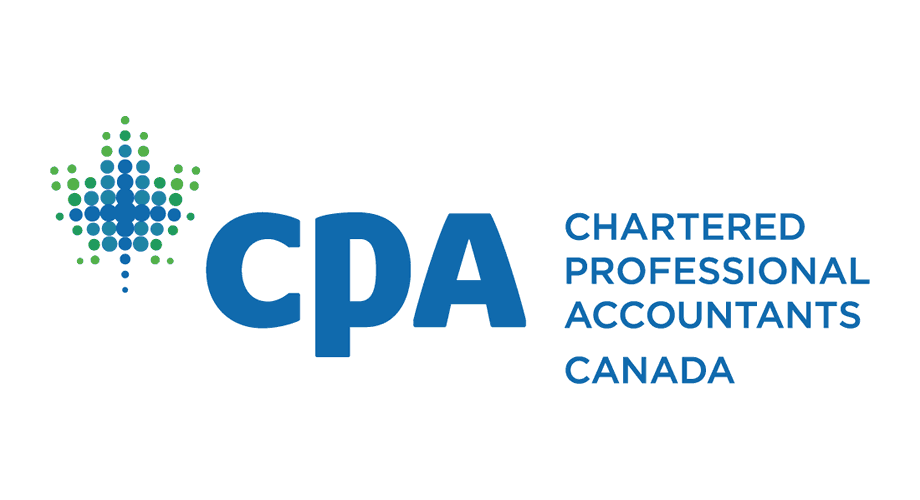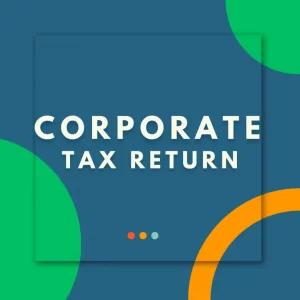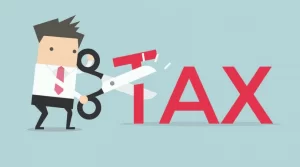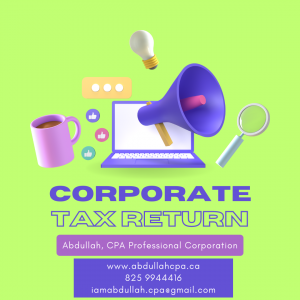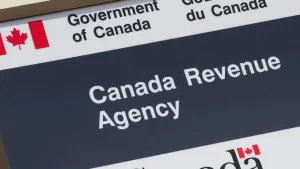Preparing your T2 corporate tax return can be an intimidating process. Whether you are a newly incorporated company or expanding your existing business operations, it can be daunting when confronted with the requirements and tax forms for filing a T2 return.
If your corporation does not have an in-house accountant or accounting team, it is always recommended to hire a CPA (Chartered Professional Accountant) with experience in T2 corporate tax returns. As your corporation’s tax obligations grow, it is important that you keep up with requirements to meet these obligations.
The CPAs (Chartered Professional Accountants) at Abdullah CPA specialize in filing T2 tax returns for Canadian Corporations. Get answers to some questions about filing T2 corporate tax returns with our T2 tax return guide.
For more detailed instructions pertaining to your corporation, contact a tax accountant.
What is a T2 Tax Return?
Corporations that operate in Canada must pay income taxes on their earnings, just like individuals do. The T2 Corporation Income Tax Return is the mandatory general return form that must be used in order to file corporate taxes. There is also the T2 Short Return, which, as its name suggests, is a shorter return form. Only certain corporations are eligible for the T2 Short Return.
There are also additional corporate tax forms that must be filled in addition to the T2. These are the Schedules and GIFI (General Index of Financial Information).
Corporations must file a T2 for each taxation year or risk incurring financial penalties.
Who Needs to File a T2?
All corporations residing in Canada must file a T2 with the Canada Revenue Agency (CRA).
This includes companies that:
- Do not have to pay tax
- Is idle with no activity (or income)
- Is a non-profit organization
- Is exempt from tax
In some situations, non-resident corporations may also have to file a T2 corporate tax return. If it carried on business in Canada, achieved taxable capital gain, or disposed of taxable Canadian property, it will have to file a T2 with the CRA even if it is not a Canadian corporation.
What Information Is Needed For T2 Income Tax Return?
A corporation’s T2 return requires a great deal of information to be filed correctly. Before filing, you should compile all required information and relevant documents to make the process smoother.
The most common information and documents required to file a T2 corporate return include:
- Company name, registered address, and Business Number
- Names and addresses of all shareholders
- Whether shareholders hold shares in other companies or if the company is bound or associated with other companies
- Articles of Incorporation
- Complete financial statements (statements of income, balance sheet, bank and credit card statements) filed with the General Index of Financial Information (GIFI)
- Prior-year financial statements and T2 return and Notice Of Assessments if applicable
- The company’s main activities – products and services provided in percentages
- Different sources of income for the corporation (investment, real estate, etc)
- Where the company performs its activities – inside or outside Canada, which province or territory
- Whether the company paid or received dividends
- Acquisition or disposal of fixed assets
- A list of changes to the corporation from last year (I.e. shareholders or addresses)
- Any carry-forward information of prior years, if applicable
- Any relevant government correspondence relating to the corporation
If you work with a tax accountant or use web-based filing software, much of this information will already be on file. Your accountant will let you know if there is other information required of you before filing.
T2 Corporate Income Tax Return Guide
The T2 Corporate Income Statement is an 8-page document specific to corporations that carry out business in Canada. It is to be filed with relevant schedules and the GIFI.
This tax form contains all relevant information about your business activity in the given tax year. The income sources and figures are declared, and tax credits and deductions can be claimed, including the small business deduction, refundable portions of Part I Tax, general tax reductions, and other tax credits relevant to your business.
The information you enter on your T2 tax return also gives guidance on the Schedules you will have to attach with your filing.
Lastly and importantly, there is a certification portion. You or someone of position in the company must certify that all information provided is correct and true.
Note, corporations earning income in Quebec and Alberta must file separate provincial corporation income tax returns, because these provinces administer their own corporation income tax systems. Corporations with permanent establishments in any other province or territory calculate all relevant income taxes on the T2.
What is the General Index of Financial Information?
Corporations must also file a General Index of Financial Information with their T2. It is a standard list of codes that you use to prepare financial statements. The GIFI reports information from the corporation’s income statement, balance sheet, and statement of retained earnings.
There is also a short-form GIFI available to corporations that qualify.
This can be completed using Internet filing. It provides general information about your corporation’s finances that are then enhanced by the Schedules that you submit.
T2 Short Return
The T2 Short Return is an alternate T2 that some corporations in Canada are eligible to file instead of the longer T2 Corporate Income Tax Return form. This is a 2-page document that only requires 3 additional schedules: Schedule 100, Schedule 125, and Schedule 141. If a corporation is inactive, it does not need to attach Schedule 100. Please note, you may have to attach other Schedules that are not mandatory depending on your corporation’s business activity in that year as well.
Not all companies are able to use the T2 Short return. Companies that fit into either of these circumstances are eligible:
- They are a Canadian-controlled private corporation (CCPC) the entire year that has a nil net income or a loss for income tax purposes
- They are a non-profit organization of another corporation that is exempt from tax under Section 149 of the Income Tax Act
If a corporation meets one of these two requirements, they must still meet all these other conditions to use the CRA T2 Short Return:
- It has a permanent establishment in only one province or territory
- It is not claiming any refundable tax credits (other than a refund of instalments paid)
- It did not receive or pay out any taxable dividends
- It is reporting in Canadian currency
- It does not have an Ontario transitional tax debit
- It does not have an amount calculated under section 34.2 of the Income Tax Act
- It can also be used for a tax-exempt corporation which has permanent establishment in only one province or territory.
The T2 Short return follows the same filing manual as the T2 Corporate Income Statement – just with less paperwork. Your accountant will inform you if you are eligible to use the T2 Short.
T2 Returns and Schedules – Do I Need Them?
Yes, you need to file certain corporate tax return T2 schedules when you file your T2 corporate tax return.
Schedules refer to additional documents that provide detail about specific aspects of your corporation’s activities and finances. They must be filled out alongside your T2 when you file with the CRA. The failure to send appropriate schedules with your T2 when you file can lead to hefty penalties.
The CRA T2 schedules are organized into two categories.
Information schedules, which include general information and those relating to transactions.
Calculation schedules, which include schedules used to calculate net income, taxable income, deductions, taxes, and credits.
Schedule 100, Schedule 125, and Schedule 141 are mandatory schedules to fill out when filing your T2. Other schedules, like Schedule 50, Schedule 8, and Schedule 7, may be mandatory depending on your business activities as well.
The CRA has compiled an extensive list of T2 schedules required for T2 filing. View them on their website.
What Is the T2 Tax Return Deadline?
The T2 filing deadline depends on your corporation’s fiscal year. The tax year ends when your corporation’s fiscal year ends.
You must file your corporate tax return no more than six months after the end of your corporation’s tax year. When the corporation’s tax year ends on the last day of a month, file the return by the last day of the sixth month after the end of the tax year. When the last day of the tax year is not the last day of a month, file the return by the same day of the sixth month after the end of the tax year.
For example, if your corporation’s tax year ends March 31st, your T2 filing deadline is September 30th. If your corporation’s tax year ends March 23rd, your T2 filing deadline is September 23rd.
When the T2 filing deadline falls on a Saturday, Sunday, or public holiday recognized by the CRA, the return is considered filed on time if it is sent on the first business day after the filing deadline.
What are the T2 Penalties?
There are a number of penalties associated with filing a T2 past the deadline or if you make errors or omissions in your return.
The easiest T2 penalty to avoid is the failure to file penalty, which you will incur if you file your T2 late.This penalty is 5% of the unpaid tax that is due on the filing deadline, plus 1% of this unpaid tax for each complete month that the return is late, to a maximum of 12 months.
A corporation can be charged an even higher T2 late filing penalty if the CRA issues a demand to file and they assessed a failure to file in any of the three previous tax years. This penalty is 10% of the unpaid tax when the return was due, plus 2% of this unpaid tax for each complete month that the return is late, up to a maximum of 20 months.
There are also penalties for errors, omissions, undeclared income, late payments, and more.
For more details on the T2 late filing penalty and other penalties, visit the Canada Revenue Agency.
Where To Send T2 Return
It is recommended to file your T2 income tax return online.
To file your T2 Corporation income tax return directly to the CRA through the Internet, you require either a Web Access Code or an EFILE number and password. You can apply for a Web Access Code directly through certain commercial tax preparation software or by contacting the CRA directly. This is typically the option for individuals, accountants, or owners filing their own T2.
EFILE online numbers and passwords can be obtained if you are a tax professional filing on behalf of a client or multiple corporations. These numbers are applied for on the Canada Revenue Agency website as well.
If your corporation has more than one million dollars in income per tax year, it is mandatory for it to use internet filing. These corporations cannot mail paper copies of their T2 tax returns.
Most Canadian corporations are eligible to file their T2 using Corporation Internet Filing. You will have to use CRA-certified tax filing software to do so. A number of Canada’s most popular tax preparation software programs are on their list.
T2 Tax Return Mailing Addresses
If your corporation’s gross income is less than one million dollars, it is eligible to mail paper copies of the T2 corporate tax return.
There are a number of tax centres across Canada able to receive T2 returns. The centre you send your completed T2 to depends on the registered address of the corporation.
Non-resident corporations are all required to send their completed T2 tax returns to the tax centre in Sudbury, Ontario.
For the mailing addresses for your tax centre, visit the Canada Revenue Agency website.
Filing CRA T2 Final Return
If you have decided to close your enterprise, you will need to file a T2 Final Return. The obligations for a corporation’s final return are similar to those in a regular fiscal year. You must still include all information required on the T2, file the GIFI, and include required schedules. In addition, you need to file corporate Articles of Dissolution with your final return that you applied for previous to filing your T2.
The important point for your T2 final return is checking yes on Line 078 to indicate that this is the final return up to dissolution.
If a corporation fails to file their T2 final return properly, the CRA will expect T2 returns to be filed in coming years, even if the corporation is not active.
I’ve Sent My T2 Tax Return. Now What?
Just like a personal tax return, once you file your T2, GIFI, and schedules, there are no other immediate steps to be taken. Congratulations!
You will then receive a Notice of Assessment from the CRA detailing if further actions are required, the amount you must owe, or the amount you are entitled to in a refund.
If you owe income tax, you are responsible for paying the amount in full in a lump sum or in instalments. Failure to pay your income tax by the instalment due dates will lead to interest and penalties.
Do I Need an Accountant To File T2 Tax Return?
You do not require an accountant to file a T2 corporate income tax return. However, it is always recommended to work with a certified tax accountant, even by the CRA itself.
An accountant will help you compile your relevant documents, fill out the dozens of complex and interrelated tax forms, and ensure that you meet the strict deadlines. The CRA takes tax compliance for corporations very seriously, and any errors made can lead to severe penalties for your business.
Our Chartered Professional Accountants (CPAs) are experts in Canadian corporate tax law and can provide guidance or filing services for your corporate T2. We can provide information relevant to your corporation’s T2 to ensure you have the proper documents and meet the right deadlines.
Contact us for a free consultation and learn why we are Canada’s first choice for simplifying T2 corporate income tax returns.
